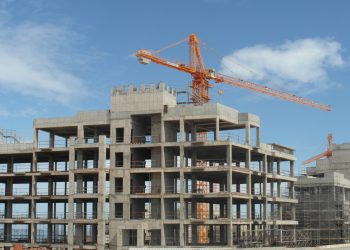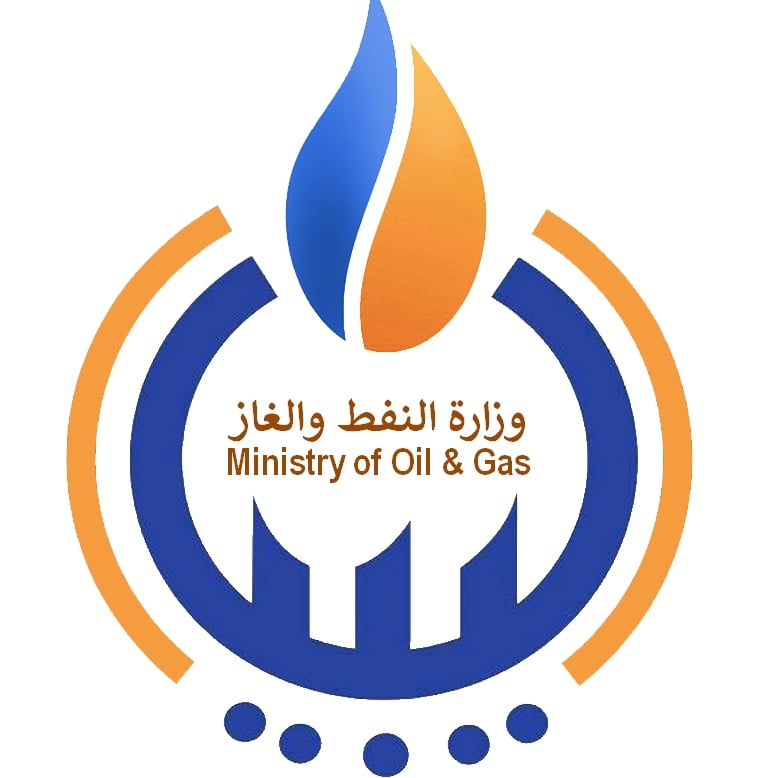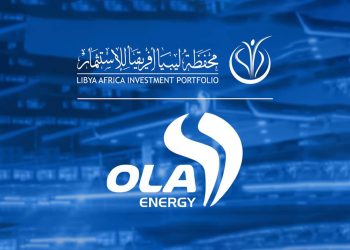A high-level Tripoli based Libyan government delegation held a meeting with several major American companies in Washington DC, the Tripoli government reported last Saturday 26 April.
The meeting, the government reported, was to support investment and build strategic economic partnerships.
The delegation, which included Acting Minister of Oil and Gas, Khalifa Abdel Sadeg, member of the Board of Directors of the Libyan Investment Authority (LIA) and head of the Prime Minister’s Executive Team, Mustafa Al-Mana, Undersecretary of the Ministry of Economy, Suhail Boushiha, met with former U.S. Ambassador to Libya, Richard Norland, President of the American Chamber of Commerce in Libya (AmCham Libya), Debbie Hirst, Deputy Assistant Secretary of Energy for Europe, Eurasia, Africa and the Middle East at the U.S. Department of Energy Joshua Falls, and Director of the Libya Office at the U.S. Department of State, Matthew Van Botten, the Director of the Maghreb States Office at the U.S. Department of Commerce, Thomas Blaubach, and several representatives of major U.S. companies.
During the meeting, the Libyan delegation reviewed major development projects and public tender for the resumption of oil exploration and exploration, stressing the availability of promising investment opportunities in Libya in the fields of energy, infrastructure, health, and digital transformation.
They also discussed the ongoing efforts with the Office of the US Trade Representative (USTR) towards activating the Trade and Investment Framework Agreement (TIFA) and the Libyan-American Council for Trade and Investment, which the Tripoli government said was welcomed by the US side.
Major American companies to visit Tripoli
The meeting witnessed an agreement to prepare (for a yet to be announced date) for an upcoming visit by a delegation of major American companies to Tripoli, while the former US ambassador renewed his country’s support for the stability of Libya and the promotion of economic development.
Reduce flaring, increase oil production and exploration and refining
During the meeting, Acting Minister of Oil and Gas, Khalifa Abdel Sadeg, confirmed work on a plan to reduce flaring, increase oil and gas production from the current 1.4 million to more than two million barrels per day over the next three years. This will be mirrored in an increase in exploration, drilling and production, as only one third of Libya’s vast area of about 2 million square kilometres has been explored, he explained.
US companies invited to bid for exploration plots
As a result, Libya announced last March a new tender bid round for exploration and production, the first in 17 years. Abdel Sadeg said it was noted from the marketing rounds for these in Houston in March, London in April and lastly in Istanbul also in April, the unprecedented desire to participate in the exploration tender bids for these 22 plots (11 onshore and 11 offshore). Many are considered low risk plots where discoveries have already been discovered. He invited all US companies to come and invest in Libya, an oil market they were pioneers in.
Increasing renewables
The Acting Oil and Gas Minister said Libya looks forward to implementing its strategic aim in 2030 of having a mix of 30 percent renewables and 70 percent hydrocarbons, and by 2040 raising the mix to more than 40 percent renewables and 60 percent hydrocarbons. These would increase Libya’s production but also its exports to international markets.
Create jobs and reduce fuel smuggling
He also confirmed an increase in refining rates in the country from 140,000 to more than 400,000 barrels per day. This increase in local refining capacity will not only achieve self-sufficiency in oil products imported by the country from abroad, but it will create employment and reduce fuel smuggling which is a byproduct of importing oil byproducts from abroad, he explained.
Meanwhile, Member of the Board of Directors of the Libyan Investment Authority (LIA) and head of the Executive Team of the Prime Minister, Mustafa Al-Mana, confirmed the activation of the Framework Agreement for Trade and Investment (TIFA) and the Libyan-American Council for Trade and Investment, in addition to signing a preliminary memorandum of understanding with the World Bank to cooperate in a set of frameworks, foremost of which is public finance reform and support in the field of digital transformation.
Former U.S. Ambassador to Libya Richard Norland
On the other hand, former U.S. Ambassador to Libya Richard Norland emphasised that the United States’ interest in establishing mutually beneficial trade and investment relations with Libya is increasing. He also stressed the importance of reaching an agreement between key Libyan actors on a unified national budget, as this plays a role in enhancing financial stability in Libya.









